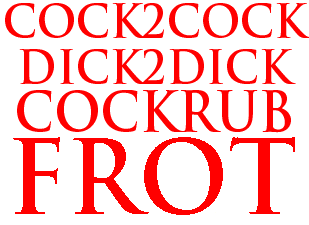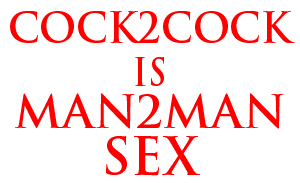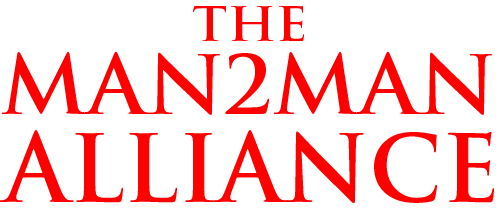




Warriors or Sodomites?
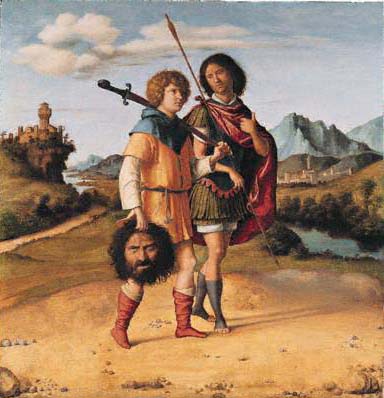

Warriors or Sodomites?
8-2-2002
Some time ago Dave Sprowls sent me an email about the biblical story of David and Jonathan which I never posted, in part because I feel that there's too much Bible and too little Greek in American life.
However, Timo's brilliant post on this board, titled the love-making of equals, the dignified and heroic existence, got me thinking.
As did Martin Finn's equally brilliant essay titled Sodomy.
And I realized that one can find two concepts or constructs of homosex in the Bible.
The first is that of Sodom, anal town, where buttfuck bullies rape -- that is, dominate, abuse, and violate -- angelic strangers who've sought refuge under ancient guest laws.
And the other is that of the
Warrior, men who come to each other in equality and love.
The Warrior model is very clear in the story of David and Jonathan, which you can find in 1 Samuel of the Old Testament.
These are two warriors who love each other in no small measure because they are warriors -- mighty in battle.
For they meet and become "one in spirit" after each has performed a noteworthy act of warrior derring-do: Jonathan and his armor bearer have raided an enemy outpost and killed 20 men, while David has slain Goliath.
Once again we can see a dichotomy:
There's the Sodomic model of *sex* between men, which is based on dominance, subjugation, and anal penetration.
And opposed to it is the Warrior model of *love* between men -- which is based on phallic equality and cock2cock love.
Seen in that light, we can think of ourselves in one of two ways:
Either, in the parlance of the safe-sex boyz, as "msm": men who have sex with men --
Or, in the locution that's evolved from posts on this board by Don F and David McQuarrie and the Cockster, MLM: men who love men
Dave Sprowl's original email follows, along with a reply from me and passages about Jonathan and David from the Book of Samuel.
Re: Warriors or Sodomites?
8-2-2002
I just had another thought that's sure to be extremely controversial. I know we all love to praise the Greco-Romans and trash the Judeo-Christians, but it seems to me that the Greeks were not necessarily as unique as we generally seem to assume and conversely the ancient Hebrews in their original form were not all that different from their neighboring cultures. Could it just be possible that the infamous passage in Leviticus, in it's original context, was really a reference to specifically anal and/or possibly oral sex and not necessarily frottage?
We all know of the controversy about the special love between Jonathan and David. There are other Biblical references to intimate male relationships without a hint of there being anything wrong with them whatever the exact nature of that intimacy may have been. There is no discernable reference in either the old or new testaments - and I have read both cover to cover - to either masturbation or lesbianism. The tiny handful of explicit references to homosexuality refer mostly to "the effeminate". The story of Sodom in Genesis, with a similar story told in Judges, is really less about homosexuality and more about the threat of rape by an unruly mob against respectable strangers who had sought refuge during a sojourn in a strange land - a violation of the ancient sacred duty of hospitality.
Now I am no cultural historian, nor do I have any other relevant expertise, so maybe I'm full of shit; then again, maybe not. I'm certainly not suggesting that the early Church praticed frottage freely - hardly!
Judeo-Christianity devloped a very repressive attitude toward sexuality in general early on. But the ancient origins and evolution of some of those attitudes may be open to fresh scrutiny by those scholars so qualified (which doesn't include me). Despite the Church's 2000 year focus on sin, homosexuality received minimal attention during most of that period.
Why? The feminized homosexual culture we identify today really seems to be a fairly recent phenomenon historically.
Re: Warriors or Sodomites?
8-2-2002
Regarding David's post:
First of all, David says, "it seems to me that the Greeks were not necessarily as unique as we generally seem to assume and conversely the ancient Hebrews in their original form were not all that different from their neighboring cultures."
While it's true that many peoples in the ancient world, particularly Indo-Europeans such as the Celts, Picts, Teutons, Italic tribes, and Greeks, practiced nude combat and homosex, the Greeks are unique in two respects:
1. they institutionalized homosex and same-sex love -- that is, they had a variety of institutions, including all-males messes, courtship rituals, the palestra and nude athletics, and religious myths, which supported and guided men through their same-sex relationships
2. they left a rich legacy of images and words celebrating men who loved men
To be fair, it's more than possible that the Celts and others had similar institutions, knowledge of which is lost to us -- although we get glimpses here and there of institutions which resemble the Greek, such as foster parentage and communal raising of young warriors, the nude warrior brotherhood known as the Gaesatae, and nude war dances.
But the best and most complete record we have of an ancient warrior culture in which Heroic Homosex was honored and celebrated was that of the Greeks -- and that's why I talk about them so frequently on the site.
David is right, too, to suggest that in some ways the Hebrews weren't that different from their neighbors.
We know that when the Hebrews entered Canaan and settled there, probably around 1300 BCE, they assumed many of the customs of the indigenous peoples.
And that can be seen very clearly in the passage in Kings where Hezekiah, 600 years later (ca 700 BCE), goes around and destroys all the Hebraic-pagan places of worship, some of which are within the precincts of Solomon's temple in Jerusalem, including altars, sacred stones, "Ishtar poles," and "the bronze snake Moses had made, for up to that time the Israelites had been burning incense to it. (It was called Nehushtan)".
So it's reasonable to assume that ca. 1000 BCE, when David and Jonathan would have been alive, the Hebrews had absorbed at least some of the customs of their Canaanite neighbors.
And they may have had their own indigenous tradition of love between warriors as well.
Here are excerpts from the story of Jonathan and David as told in 1 Samuel -- the translation is that of the New International Version:
The Story of
Jonathan and David
The Hebrew king Saul and his son Jonathan were fighting the Philistines, aka the Phoenicians or Sea Peoples, who probably reached Canaan after the Hebrews did.
1 Samuel 13
One day Jonathan son of Saul said to the young man bearing his armor, "Come, let's go over to the outpost of those uncircumcised fellows. Perhaps the LORD will act in our behalf. Nothing can hinder the LORD from saving, whether by many or by few."
Jonathan said, "Come, then; we will cross over toward the men and let them see us."
The men of the outpost shouted to Jonathan and his armor-bearer, "Come up to us and we'll teach you a lesson." So Jonathan said to his armor-bearer, "Climb up after me; the LORD has given them into the hand of Israel."
Jonathan climbed up, using his hands and feet, with his armor-bearer right behind him. The Philistines fell before Jonathan, and his armor-bearer followed and killed behind him.
In that first attack Jonathan and his armor-bearer killed some twenty men in an area of about half an acre.
[The war between the Israelites and the Philistines continues, and eventually David fights and kills the Philistine hero Goliath.
Though the narrative is a bit confused here, Saul appears not to know who David is (even though earlier David's been described in some detail as Saul's servant), so after David kills Goliath, one of Saul's warriors brings David to meet Saul.]
"Whose son are you, young man," Saul asked.
David said, "I'm the son of your servant Jesse of Bethlehem."
1 Samuel 18
After David had finished talking with Saul, Jonathan became one in spirit with David, and he loved him as himself.
And Jonathan made a covenant with David because he loved him as himself.
Jonathan took off the robe he was wearing and gave it to David, along with his tunic, and even his sword, his bow and his belt.
[Not long after, Saul becomes insane and resolves to kill David]
1 Samuel 19
Saul told his son Jonathan and all the attendants to kill David. But Jonathan was very fond of David and warned him.
Jonathan spoke well of David to Saul his father and said to him, "Let not the king do wrong to his servant David; he has not wronged you, and what he has done has benefited you greatly."
Saul listened to Jonathan and took this oath: "As surely as the LORD lives, David will not be put to death."
So Jonathan called David and told him the whole conversation. He brought him to Saul, and David was with Saul as before.
[But then Saul's insanity returned, and Saul tried to kill him with a spear.]
1 Samuel 20
Then David fled from Naioth at Ramah and went to Jonathan and asked, "What have I done? What is my crime? How have I wronged your father, that he is trying to take my life?"
"Never!" Jonathan replied. "You are not going to die! Look, my father doesn't do anything, great or small, without confiding in me. Why would he hide this from me? It's not so!"
But David took an oath and said, "Your father knows very well that I have found favor in your eyes, and he has said to himself, `Jonathan must not know this or he will be grieved.' Yet as surely as the LORD lives and as you live, there is only a step between me and death."
Jonathan said to David, "Whatever you want me to do, I'll do for you."
[David asks Jonathan to sound out his father and see if he is indeed determined to kill David. And he then adds,]
"As for you, show kindness to your servant, for you have brought him into a covenant with you before the Lord. If I am guilty, then kill me yourself! Why hand me over to your father?"
"Never!" Jonathan said. "If I had the least inkling that my father was determined to harm you, wouldn't I tell you?"
"Come," Jonathan said, "let's go out into the field." So they went there together.
Then Jonathan said to David: "By the LORD, the God of Israel, I will surely sound out my father by this time the day after tomorrow! If he is favorably disposed toward you, will I not send you word and let you know?"
So Jonathan made a covenant with the house of David, saying, "May the LORD call David's enemies to account."
And Jonathan had David reaffirm his oath out of love for him, because he loved him as he loved himself.
Then Jonathan said to David: "Tomorrow is the New Moon festival. You will be missed, because your seat will be empty."
[At the festival, Saul] sat in his customary place by the wall, opposite Jonathan, and Abner sat next to Saul, but David's place was empty.
But the next day, the second day of the month, David's place was empty again. Then Saul said to his son Jonathan, "Why hasn't the son of Jesse come to the meal, either yesterday or today?"
Jonathan answered, "David earnestly asked me for permission to go to Bethlehem."
Saul's anger flared up at Jonathan and he said to him, "You son of a perverse and rebellious woman! Don't I know that you have sided with the son of Jesse to your own shame and to the shame of the mother who bore you?"
"Why should he be put to death? What has he done?" Jonathan asked his father.
But Saul hurled his spear at him to kill him. Then Jonathan knew that his father intended to kill David.
Jonathan got up from the table in fierce anger; on that second day of the month he did not eat, because he was grieved at his father's shameful treatment of David.
In the morning Jonathan went out to the field for his meeting with David. He had a small boy with him [and had arranged a signal involving arrows to let David it was safe to meet] ...
When the boy came to the place where Jonathan's arrow had fallen, Jonathan called out after him, "Isn't the arrow beyond you?"
(The boy knew nothing of all this; only Jonathan and David knew.)
Then Jonathan gave his weapons to the boy and said, "Go, carry them back to town."
1 Samuel 20:41
After the boy had gone, David got up from the south side [of the stone] and bowed down before Jonathan three times, with his face to the ground. Then they kissed each other and wept together -- but David wept the most.
Jonathan said to David, "Go in peace, for we have sworn friendship with each other in the name of the LORD, saying, `The LORD is witness between you and me, and between your descendants and my descendants forever.'" Then David left, and Jonathan went back to the town.
And Saul's son Jonathan went to David at Horesh and helped him find strength in God.
The two of them made a covenant before the LORD. Then Jonathan went home, but David remained at Horesh.
[So there are a number of times in this story -- when Jonathan strips before David, when they go off into the fields together, when they make their covenant before the Lord, when they embrace, kiss, and weep, and when Jonathan visits David at Horesh, when we can easily imagine these two warriors who love each other rubbing cocks.]
[With David (and presumably those loyal to him) no longer fighting beside Saul and his family, Saul is vulnerable -- just as the Greeks fighting before Troy become vulnerable when Achilles and his forces leave the fray.]
1 Samuel 31
The Philistines pressed hard after Saul and his sons, and they killed his sons Jonathan, Abinadab and Malki-Shua.
2 Samuel 1
"What happened?" David asked. "Tell me." He said, "The men fled from the battle. Many of them fell and died. And Saul and his son Jonathan are dead."
Then David said to the young man who brought him the report, "How do you know that Saul and his son Jonathan are dead?"
They mourned and wept and fasted till evening for Saul and his son Jonathan, and for the army of the LORD and the house of Israel, because they had fallen by the sword.
David took up this lament concerning Saul and his son Jonathan,
"From the blood of the slain, from the flesh of the mighty, the bow of Jonathan did not turn back, the sword of Saul did not return unsatisfied.
"Saul and Jonathan-- in life they were loved and gracious, and in death they were not parted. They were swifter than eagles, they were stronger than lions.
"How the mighty have fallen in battle! Jonathan lies slain on your heights.
"I grieve for you, Jonathan my brother; you were very dear to me. Your love for me was wonderful, more wonderful than that of women."
2 Samuel 4
(Jonathan son of Saul had a son who was lame in both feet. He was five years old when the news about Saul and Jonathan came from Jezreel. His nurse picked him up and fled, but as she hurried to leave, he fell and became crippled. His name was Mephibosheth.)
David asked, "Is there anyone still left of the house of Saul to whom I can show kindness for Jonathan's sake?"
Ziba answered the king, "There is still a son of Jonathan; he is crippled in both feet."
When Mephibosheth son of Jonathan, the son of Saul, came to David, he bowed down to pay him honor. David said, "Mephibosheth!" "Your servant," he replied.
"Don't be afraid," David said to him, "for I will surely show you kindness for the sake of your father Jonathan. I will restore to you all the land that belonged to your grandfather Saul, and you will always eat at my table."
[Years later, there's a failed revolt against David, who is now king.]
2 Samuel 21:7 2
The king spared Mephibosheth son of Jonathan, the son of Saul, because of the oath before the LORD between David and Jonathan son of Saul.
And he went and took the bones of Saul and his son Jonathan from the citizens of Jabesh Gilead. (They had taken them secretly from the public square at Beth Shan, where the Philistines had hung them after they struck Saul down on Gilboa.)
David brought the bones of Saul and his son Jonathan from there, and the bones of those who had been killed and exposed were gathered up.
They buried the bones of Saul and his son Jonathan in the tomb of Saul's father Kish, at Zela in Benjamin, and did everything the king commanded. After that, God answered prayer in behalf of the land.
So there's the story -- beautiful, and beautifully told.
And there are echoes of Greek homosex in it: in Jonathan and David's mutual devotion, in the idea that the love of Jonathan was more wonderful than that of women, and in the way that David later protects Jonathan's son.
And the priestly scribes who edited and finalized this story would almost certainly have been exposed to some of the traditions of Greek homosex.
Nevertheless, there's still a big difference between this story and those of the Greeks, and that is that the Greeks openly describe heroes, gods, and men as lovers: Harmodius and Aristogeiton, Achilles and Patroclus, Alexander and Hephaestion, Herakles and Iolaus, Zeus and Ganymedes, Poseidon and Pelops, Apollo and Hyacinth -- and that's just a few.
So to try to make some modern parallels:
Imagine that you're living in a country in which Jesus is universally believed to have been the lover of James, who now lives in Heaven with him; that there are other religious figures, like saints, who had same-sex lovers; that Patrick Henry and Tom Paine were lovers, that the American revolution started when the English governor of Virginia tried to rape Patrick and Tom killed him, and that there are nude statues of Tom and Patrick in every town in America.
And of Jesus and James in every church.
And of nude athletes with their boyfriends in every stadium and high school gym.
That's what ancient Greece was like, and there's no equivalently open celebration of men loving men among the Hebrews.
Still, there are many gaps in the Hebrew text, and we know that it was heavily edited by priestly scribes.
So there's ample room for those who wish to see David and Jonathan as lovers.
And Cockrub Warriors.
Re: Warriors or Sodomites?
11-1-2003
David and Jonathan: The verse that can't be explained
I've read somewhere on the net that the bible doesn't reject homosexuals but a specific type of homosexual. (one that has no respect for themselves and their body.)
And that the terms used to describe homosexuals in the bible (when read in the original greek and hebrew language) are actually derogatory words used to describe "bad" homosexuals.
Like a male prostitute, boy prostitute, or one who has no inhabitians about sexual pleasure.
And the famous Old Testament verse about lying with a man as one lies with a woman specifically refers not to two men being 'together' but anal sex or sodomy as an unclean deed that was practiced with temple prostitutes.
I'm not sure, but those are some suggestions I saw on the net.
The story of David and Jonathan stands out, How the language used and the original verses in Greek and hebrew show a relationship that's a little more intimate than a Friendship.
The one verse in the story that no preacher, pastor, or bible basher can figure out is this one
"You son of a perverse and rebellious woman! Do I not know that you have chosen the son of Jesse to your own shame, and to the shame of your mother's nakedness?"
I decided to look up info on that verse.
I couldn't find any site that discussed this one verse in any sort of detail, or at all.
This verse seems to be undeniable proof that the relationship had some sort of desire/sexual aspect to it. People seem to be running circles around the verse when I look it up on different sites.
"mother's nakedness" almost always refers to sexual sin, or sexuality of some sort.
And I read that the word that's used for 'chosen' actually in the original language means 'companioned' as in "chosen to be together."
Saul was mad that Jonathan had chosen his love for another man over his right to the throne and family lineage and chastized him for it.
If I could ask a priest what it really means, I wonder if they could conjure up a valid response or just admit that they don't know either.
Re: Warriors or Sodomites
11-01-2003
hey boomer
thank you for this post
there are of course many many websites devoted to the Bible and homosexuality, but this may be the one you're thinking of:
http://www.truluck.com/html/the_bible_and_homosexuality.html
we're interested in the story of David and Jonathan on this site, as we are in such Greek heroes as Achilles and Patroclus and Harmodius and Aristogeiton because of the role models they offer us of warrior love
and just a few days ago, i was contacted by an expert in Celtic history and myth, who offered to prepare a brief article for us on the mythic Irish hero Cuchulainn and his 'heart's companion' Ferdiad -- Cuchulainn is often called the Celtic Hercules, and what our expert has to say will, i think, amaze and astound you -- so that will be coming soon
whatever Biblical translations may say -- and we have to remember that the books of the Bible were transcribed by hand over thousands of years and that those who transcribed them may have changed meanings, particularly about sexual matters --
what's important is the way we can find echoes of our own lives in those of these warrior lovers
whether David and Jonathan, or Achilles and Patroclus, or Cuchulainn and Ferdiad
as boys, when first exposed to these Bible stories and heroic myths, most of us had the sense that the lives of these men had great relevance for our own
we knew in our hearts that these men were more than "friends," that their mutual and heroic devotion spoke of love
but then we were told that these were just old stories after all, that they had little or no meaning for men today, and certainly not for "gay" men -- who aren't really men at all and who aren't capable of love
in my own life, despite always having had an heroic ideal, it wasn't until i'd been through my lover's life and death from AIDS that i was able to honestly see myself as heroic, and to understand that he and i had lived through an experience akin to that of Gilgamesh and Achilles
so: on this site we speak of Heroes, we speak of men behaving nobly, of strong men loving other strong men faithfully and heroically
that is the promise of Heroic Homosex and The Man2Man Alliance:
that what once was
can be again

bill
Add a reply to this discussion
Back to Personal Stories
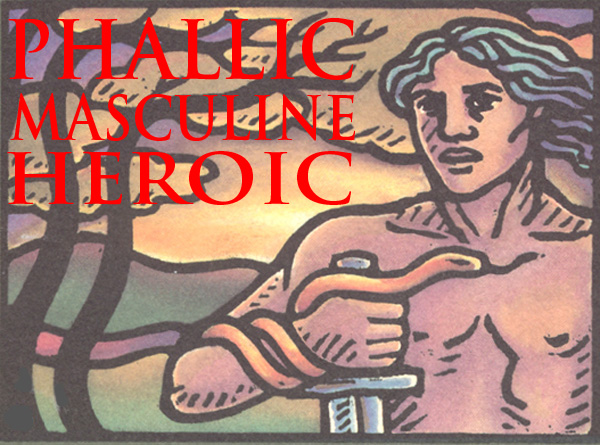



AND


Warriors Speak is presented by The Man2Man Alliance, an organization of men into Frot
To learn more about Frot, ck out What's Hot About Frot
Or visit our FAQs page.

| Heroes Site Guide | Toward a New Concept of M2M | What Sex Is |In Search of an Heroic Friend | Masculinity and Spirit |
| Jocks and Cocks | Gilgamesh | The Greeks | Hoplites! | The Warrior Bond | Nude Combat | Phallic, Masculine, Heroic | Reading |
| Heroic Homosex Home | Cockrub Warriors Home | Heroes Home | Story of Bill and Brett Home | Frot Club Home |
| Definitions | FAQs | Join Us | Contact Us | Tell Your Story |

© All material on this site Copyright 2001 - 2010 by Bill Weintraub. All rights reserved.
